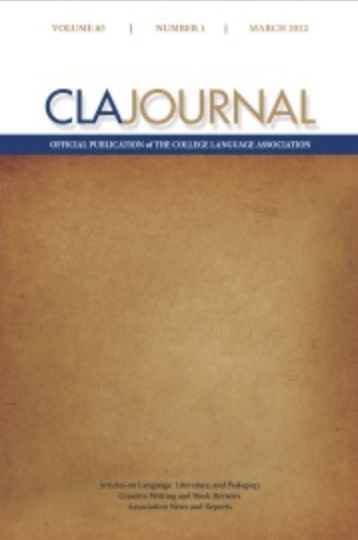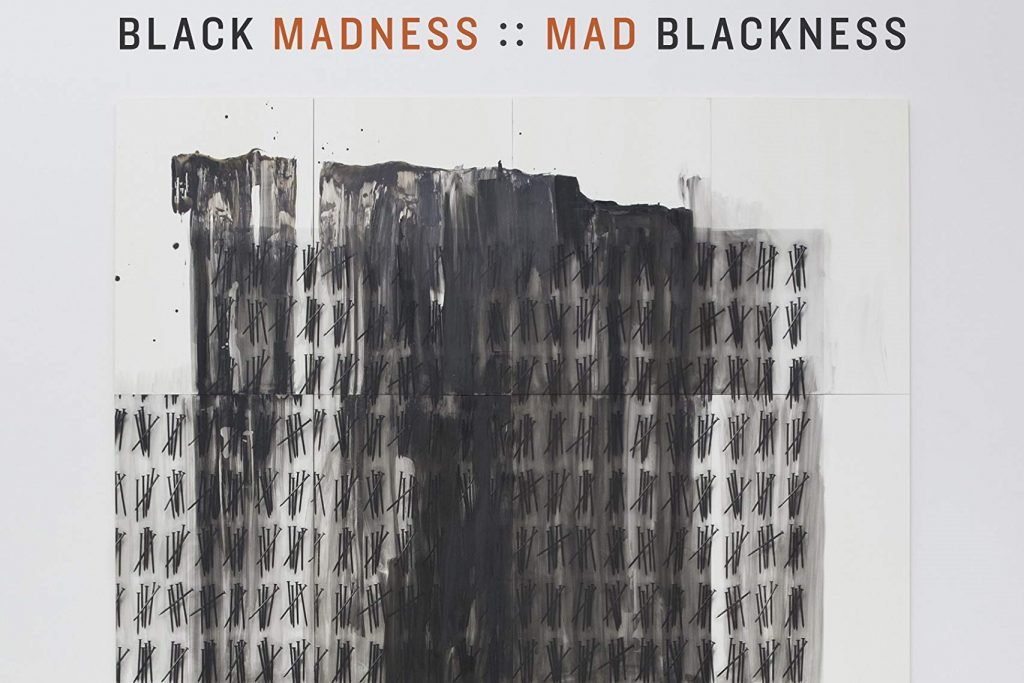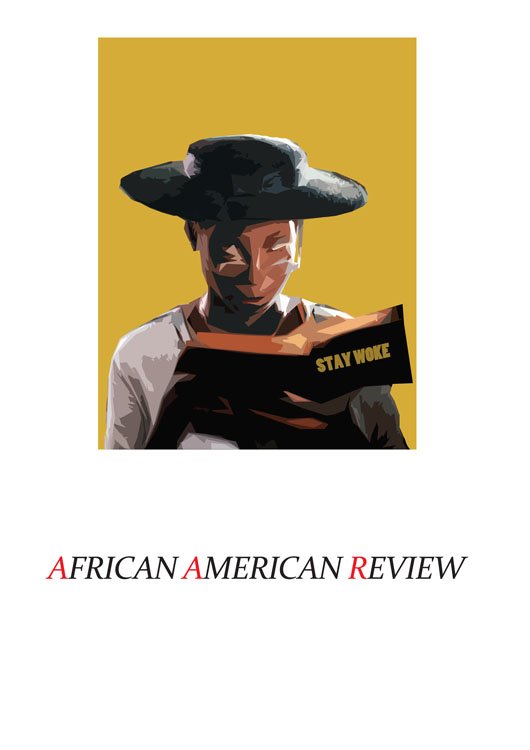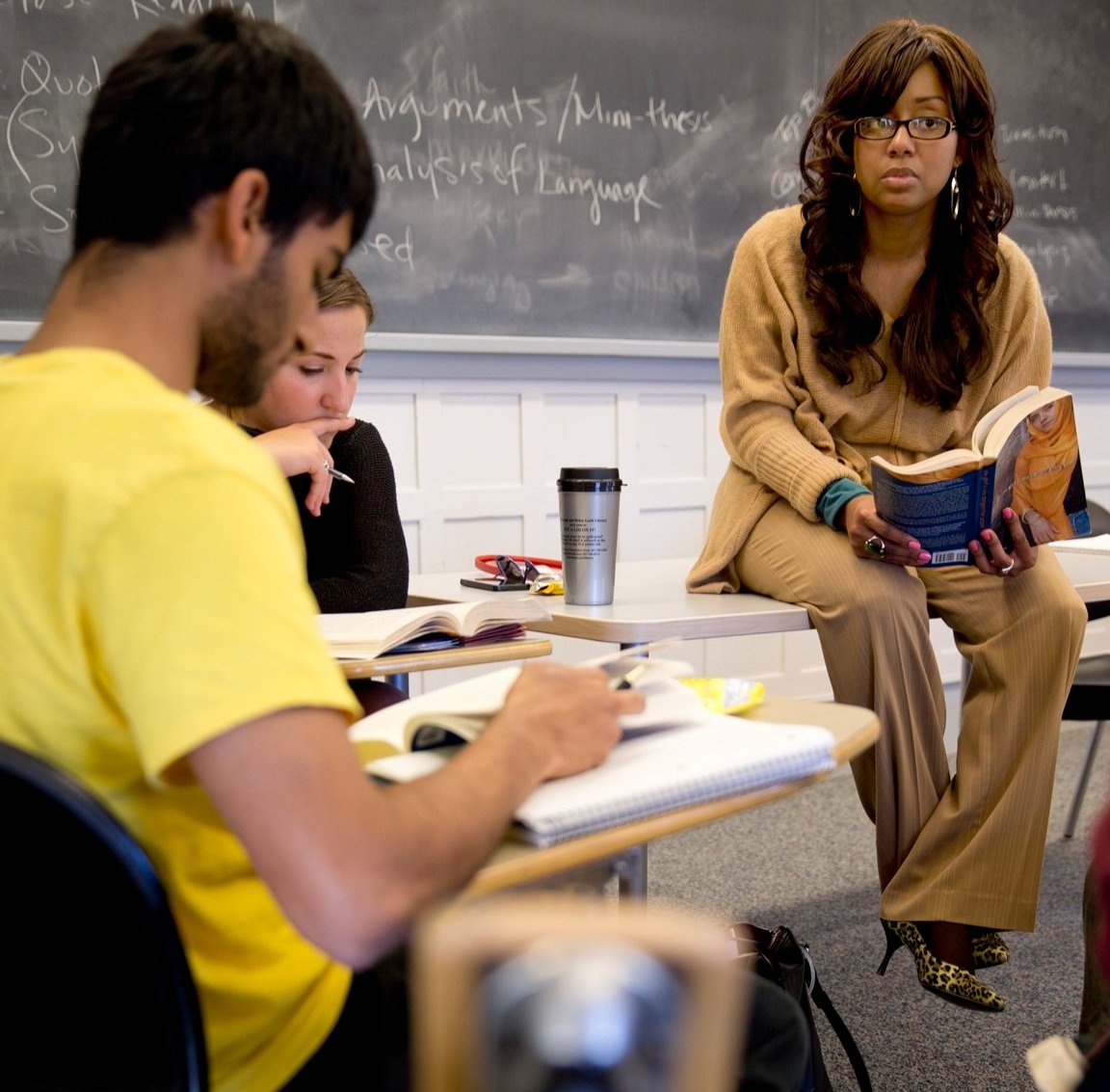
Research
Therí A. Pickens

College Language Association Journal,
Special Issue, 2021
In summer 2017, African American Review published a special issue on Blackness and Disability. This issue will be groundbreaking for a variety of reasons, including that this will be the first discussion of its kind in a space dedicated to the study of Blackness. So that the first special issue does not function as a scholarly version of a one-hit wonder, and that without prodding these conversations would get stagnated, I created another space for scholars to have this conversation about blackness and disability in CLAJ, entitled Blackness and Disability: The Remix or I Thought I Told You That We Won’t Stop.
I had a dual purpose in continuing the conversation here. First, I firmly believe that much of the work submitted for AAR was quite good and I would like to provide scholars with every opportunity to publish their work. Because these ideas are too important to let languish, it becomes imperative that we create opportunities. Second, the College Language Association has been a home for scholars of color since 1937 when the Modern Language Association was segregated if not by law then certainly by practice. To publish a conversation about Blackness and disability in this journal is not only a symbolic gesture about the import of the conversation, but also opens up avenues of discussion with new audiences.
Blackness and Disability: The Remix or I Thought I Told You That We Won’t Stop opens up several significant scholarly avenues. First, it offers continuity since the other special issue will not be the final word. Because the discussion of Blackness and disability is often thought of as limiting and limited, I find it imperative to put out a variety of high quality scholarship that demonstrates otherwise. Second, discussions about Blackness and Disability require a refusal of easy narratives about intellectual lineage. To narrativize this field as though it begins or proceeds neatly from idea to idea is to do a disservice to it. The truth is that the scholarship has had quite a few fits and starts, which means that there are a wide range of entry points. A reprisal allows us to explore these angles. Third, augmenting the body of scholarship in a different venue allows for greater dissemination of these ideas. Of course, there is the possibility of cross-pollination between AAR and CLAJ readers. There is also the possibility of attracting new readers based on these topics. Finally, as the music metaphor suggests, the remix – along with the reprise, and the re-up – suggest a replenishing, returning, and reinvention. The more we learn about Blackness and disability together, the more we understand that they are mercurial and complex. We need an opportunity for scholarship to self-consciously reinvest in the topics by intentionally returning to them.

Black Madness :: Mad Blackness
In Black Madness :: Mad Blackness Therí Alyce Pickens rethinks the relationship between Blackness and disability, unsettling the common theorization that they are mutually constitutive. Pickens shows how Black speculative and science fiction authors such as Octavia Butler, Nalo Hopkinson, and Tananarive Due craft new worlds that reimagine the intersection of Blackness and madness. These creative writer-theorists formulate new parameters for thinking through Blackness and madness. Pickens considers Butler's Fledgling as an archive of Black madness that demonstrates how race and ability shape subjectivity while constructing the building blocks for antiracist and anti-ableist futures. She examines how Hopkinson's Midnight Robber theorizes mad Blackness and how Due's African Immortals series contests dominant definitions of the human. The theorizations of race and disability that emerge from these works, Pickens demonstrates, challenge the paradigms of subjectivity that white supremacy and ableism enforce, thereby pointing to the potential for new forms of radical politics.

Arab American Aesthetics
Arab American Aesthetics enlists a wide range of voices to explore, if not tentatively define, what could constitute Arab American aesthetics in literature, material culture, film, and theatre.
This book seeks to unsettle current conversations within Arab American Studies that neglect aesthetics as a set of choices and constraints. Rather than divorce aesthetics from politics, the book sutures the two more closely together by challenging the causal relationship so often attributed to them. The conversations include formal choices, but also extend to the broad idea of what makes a work distinctly Arab American. That is, what about its beauty, ugliness, sublimity, or humor is explicitly tied to it as part of a tradition of Arab American arts? The book opens up the ways that we discuss Arab American literary and fine arts, so that we understand how Arab American identity and experience begets Arab American artistic enterprise. Split into three sections, the first offers a set of theoretical propositions for understanding aesthetics that traverse Arab American cultural production. The second section focuses on material culture as a way to think through the creation of objects as an aesthetic enterprise. The final section looks at narratives in theatre and how the impact of such a medium has the potential to recreate in both senses of the word: play and invention.
By shifting the conversation from identity politics to the relationship between politics and aesthetics, this book provides an important contribution to Arab American studies. It will also appeal to students and scholars of ethnic studies, museum studies, and cultural studies.

African American Review, Special Issue, 2017
In 2006, the late Christopher M. Bell lamented “the failure of Disability Studies to engage issues of race and ethnicity in a substantive capacity.” In recent years, scholars like Michelle Jarman, Jennifer James, Cynthia Wu, Nirmalla Ervelles, and Terry Rowden have filled this lacuna with essays and books of their own. Though it may no longer be necessary to think in terms of failure, we still have a significant amount of work to do in exploring the scholarly terrain where disability and race intersect. In an effort to continue this conversation, this special issue of African American Review seeks essays that probe the connections between blackness and disability and think beyond the idea that one is simply like the other.
We define disability as the existing social, legal, and cultural conditions that make the world un-navegable for people with impairments, drawing a distinction between material realities and the consequences of social (in)action. We recognize the historical relationship between racializing and disabling discourses as complex and dynamic. In this issue, we aim to challenge, expose, and analyze the way these discourses shape literary and cultural production.
Centralizing disability in discussions of blackness revamps our understanding of what blackness was, is, and could be. In terms of history, it asks us to recast Harriet Tubman as mentally disabled (based on her head injury), and by extension the conception of slaves as extremely abled. The use of amputation as a punishment for seeking freedom challenges us to consider that blackness and disability are simultaneously constructed as anti-thetical to freedom itself and dangerous to the nation-state. If we are to think about how black citizens must traverse structural inequality regularly, how might that be complicated by an inability to get inside the actual structures one needs to enter? How might the back and side ramp entrances to government buildings create a permanent but vexed easement into institutions for black disabled folk? In terms of scholarly work, performance studies and cultural studies seek to reimagine the black body as outside the strictures placed upon it, but generally do so in abled terms. In short, I ask a question similar to Gloria Hull, Patricia Bell Scott and Barbara Smith’s inquiry for their collection on black feminism: if all the disabled are white, and all the blacks are abled, what are those of us in the middle? This special issue would be groundbreaking because it asks for nothing less than a retooling of the very terms of blackness and disability. To view the two together is to disrupt and change both.

New Body Politics
Narrating Arab and Black Identity in the Contemporary United States
In the increasingly multi-racial and multi-ethnic American landscape of the present, understanding and bridging dynamic cross-cultural conversations about social and political concerns becomes a complicated humanistic project. How do everyday embodied experiences transform from being anecdotal to having social and political significance? What can the experience of corporeality offer social and political discourse? And, how does that discourse change when those bodies belong to Arab Americans and African Americans?
Therí A. Pickens discusses a range of literary, cultural, and archival material where narratives emphasize embodied experience to examine how these experiences constitute Arab Americans and African Americans as social and political subjects. Pickens argues that Arab American and African American narratives rely on the body’s fragility, rather than its exceptional strength or emotion, to create urgent social and political critiques. The creators of these narratives find potential in mundane experiences such as breathing, touch, illness, pain, and death. Each chapter in this book focuses on one of these everyday embodied experiences and examines how authors mobilize that fragility to create social and political commentary. Pickens discusses how the authors' focus on quotidian experiences complicates their critiques of the nation state, domestic and international politics, exile, cultural mores, and the medical establishment.
New Body Politics participates in a vibrant interdisciplinary conversation about cross-ethnic studies, American literature, and Arab American literature. Using intercultural analysis, Pickens explores issues of the body and representation that will be relevant to fields as varied as Political Science, African American Studies, Arab American Studies, and Disability Studies.



